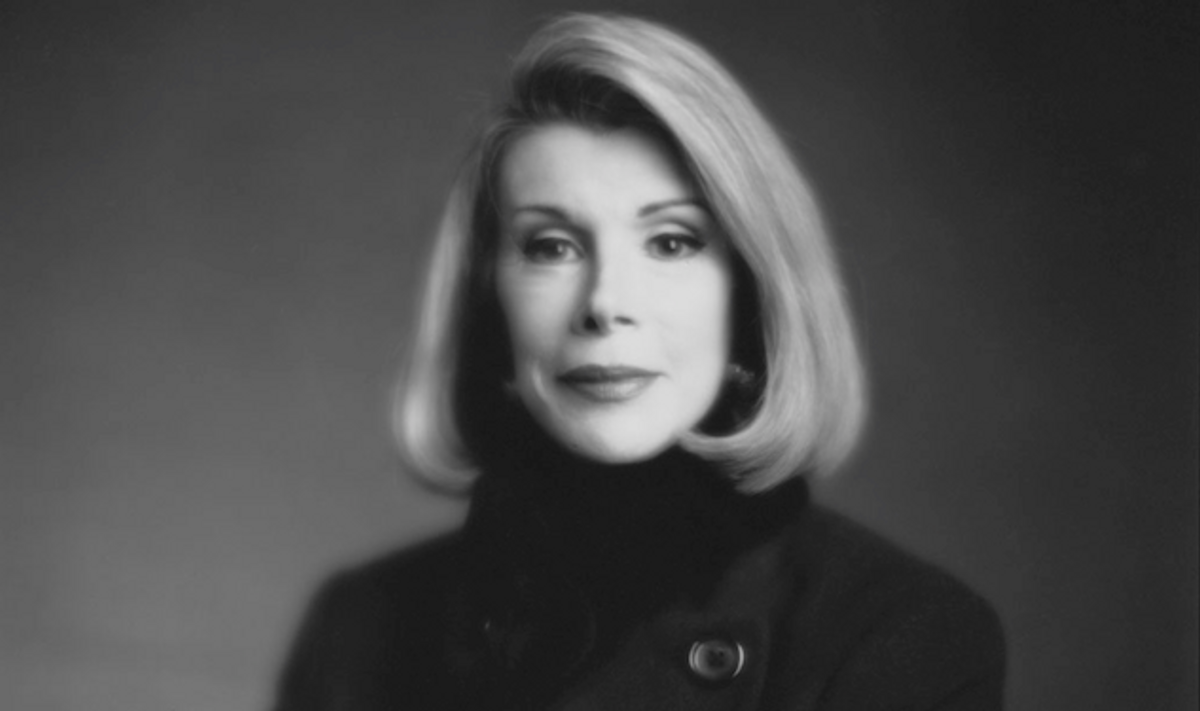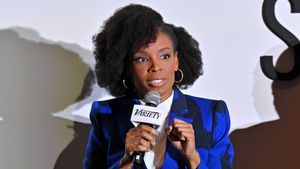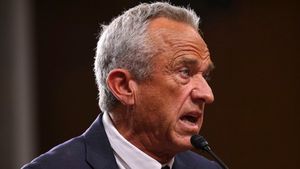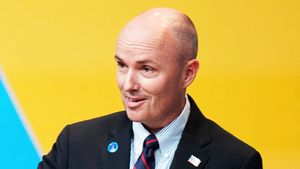(c)Timothy Greenfield-Sanders
For a young gay Jewish man in the 1980s, the television industry was still rife with prejudices that could stop you dead in your tracks. At the time I usually got to the last round of interviews for any position, but almost every offer had a caveat to it, which ran along the lines of, "When you join the firm we need you to dress a certain way, and those glasses wouldn't really work for us." Even though I wasn't completely out at that point, I was smart enough to realize that I was being told I was too gay for the job, and that I was not going to have an easy career path, unless I wanted to live this very, very closeted life.
Fox was very different. It was the Facebook of 1986. A close college friend introduced me to the new head of programming at what was then known as FBC, and I was hired. Both of my bosses were gay, and they were very successful, and they were still young themselves. That in itself seemed revolutionary. The network was so small that when Jamie Kellner, the head of the network, invited the executives over to his house for dinner, I recall him saying, "This will be one of the only times that a major television network's entire staff will be able to fit around my dining room table." It probably was.
Before my first meeting with Joan and Edgar [Rosenberg], her husband, I wondered if they would have a problem with the composition of our department. And then, once I started working even tangentially with them, I realized it was a complete non-issue. It was something that didn't even enter into the conversation. Billy Sammeth, who was her manager and one of the Executive Producers of the show, was also gay, and managed Joan and Cher. Does it get any gayer? The line-up for the first show was Elton John, Cher, and Pee-wee Herman. Oh, and David Lee Roth.
At the time, many people thought bringing on Joan Rivers to head up Fox's late night initiative was a brilliant move. It was also, in the stratified world of network television, somewhat heretic. Fox had essentially stolen someone from Johnny Carson, which just wasn't done. But the importance of The Late Show was not only was it was hosted by Joan Rivers, and that it was a Jewish woman as a host, but that it was the first and only show on the Fox network.
Rivers was under extraordinary pressure in those days, very much under the kind of spotlight that some reality stars are used to now. But it was new back then. Leaving Johnny Carson was a bona-fide scandal. It was a national topic for months, and she weathered that storm and all the things that went along with it including -- if you read carefully enough -- the anti-Semitism that was inherent in it, the misogyny. She weathered a lot as she was launching her first show. The first night of the show was so overwhelming, all of us just had this kind of emotional release, and the crowd leapt to their feet and physically embraced her. People would come down and just give her a hug because they knew what she'd been through to get to that point. And she was not just carrying the weight of her own show, but the launch of what was a new business plan for some very, very high profile people, all the while dealing with the fact that her mentor, Johnny Carson, would never speak to her again, and in fact was actively working against her by threatening agents with being blacklisted by Carson if they appeared on our show.
If you look at Joan Rivers throughout her life, and the move to Fox typifies it, she was a change agent. There are not many people in life who are change agents, but she a tremendous sense of what was going to be next. She was really quite visionary, not only in her own comedy, but in understanding business.
The move to Fox was a realization that audiences were going to become fragmented, and that this fourth network might be an opportunity, but after that, also--taking advantage of creating a line on QVC, doing reality TV, moving to the web--all reflected her understanding of where media was going.
What I think she would be thrilled about is that she died without anyone thinking of her as an old lady, partly because of how she maintained her appearance, but more importantly because she kept her edge to the very, very last moment. I've known a lot of 81-year-olds, and most of them feel like old people. She was breaking age and gender barriers her whole life, including how she approached old age. And I think for a lot of us who looked up to her, what she taught us best was how to be resilient. What you think of as the end is very often just the beginning.




















































































